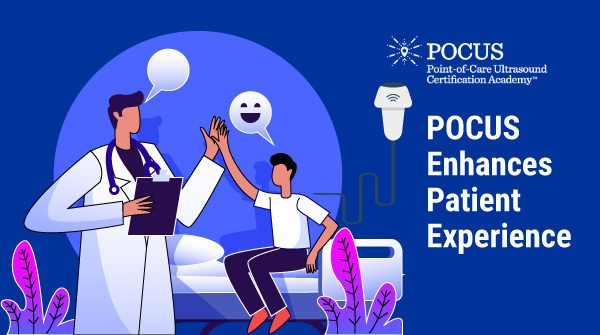Patient care is at the heart of the medical community’s mission. As healthcare professionals, from the day we chose to enter medicine to where we are today, we commit ourselves to the care of others. Each day, we wake up and make a difference in the lives of our patients. The individual impact of each of us within the medical field worldwide cumulates into better care globally.

In honor of the doctors, nurses, physician assistants, medical students, and all of our peers who shape the patient’s journey, The Beryl Institute hosts an annual celebration called Patient Experience Week. This week provides an opportunity for the global healthcare community to come together to recognize the accomplishments, highlight the efforts, and spotlight the individuals whose everyday goal is helping others.
To capture this moment, the Beryl Institute defines the patient experience as “the sum of all interactions, shaped by an organization’s culture, that influence patient perceptions across the continuum of care.”
According to their president, Jason Wolf, having a concise meaning behind the patient experience is essential because “without definition, we have no basis for action.” In this description, four core elements influence the patient experience and inform the focus of healthcare organizations:
- Interactions
- Culture
- Continuum of Care
- Perceptions
These concepts combine to mold the patient experience and shine in the commendable, life-saving work that medical professionals do. This week, as we honor the incredible providers who go above and beyond in supporting their patients, we at the Point-of-Care Ultrasound Certification Academy™ also recognize how the innovative advancements in medicine and technology contribute to the patient experience.
Point-of-care ultrasound (POCUS) is a modality that enhances medical professional’s diagnostic procedures and provides comfort to patients, who are increasingly recognizing it as a tool that demonstrates their healthcare institute’s dedication to providing the best care possible. The benefits of using POCUS align with all four components of the Beryl Institute’s definition of the patient experience.
For example, the pocket-size device collects additional medical information rapidly, which informs the diagnostic process and helps provide patients answers more timely. This exchange not only improves the medical care patients receive, but it also allows them to feel comforted during what can be a scary time for them. This benefit of POCUS captures the Beryl Institute’s core element, interactions, because, as Wolf states, “at our core, we are human beings caring for human beings.”
The next element, culture, is arguably at the heart of every medical facility, impacting its team of healthcare workers, providing expectations and standards, and enabling how the organization responds. For healthcare centers with POCUS programs, embracing the modality and its advantages is embedded in the culture.
The ongoing patient experience and its reach beyond the facility’s confines is what the Beryl Institute coins “the continuum of care.” And like this core element, POCUS has transcended medical specialties and geography. Its benefits have gone beyond its traditional role of imaging and radiology, and its handheld size allows for it to be accessible and applied in urban and rural locations. The healthcare community’s mission to provide high-quality global care knows no bounds, and neither does the impact of POCUS.
Finally, the patient experience is strongly influenced by the consumer’s perception, in this case, the patients and their family members that we care for. It is important they feel seen and heard. The use of POCUS in medicine ensures individuals feel confident in the care they’re receiving.
The patient experience would not be achievable without the dedication, passion, and compassion of healthcare professionals everywhere and the support provided by their institutions. Advancements in medicine and technology are powerful tools. Still, without our community’s commitment, the impact of modalities like POCUS would not reach the heights they are continuing to soar to.
Want to start your POCUS journey today? Check out our many certificate and certification programs.





















